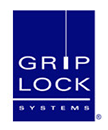Industry News
NEMA Publishes Procedure For Determining Efficacy Ratings For Luminaires
June 12, 2015
The National Electrical Manufacturers Association (NEMA) published LE 6-2014 Procedure for Determining Target Efficacy Ratings for Commercial, Industrial, and Residential Luminaires. It was updated to explicitly include LED (light-emitting diode) technology and is of particular interest to recessed luminaire manufacturers, fluorescent lamp manufacturers, and HID (high intensity discharge) manufacturers
Developed by the NEMA LE Section, its purpose is to:
-provide the lighting design community and procurement officials with a practical and uniform method for calculating a metric to evaluate and compare the "energy effectiveness" of luminaires
-provide the ability for construction or renovations focused on sustainable design to evaluate the energy performance of luminaires
-provide electrical utility companies with a method to establish performance criteria for luminaires for use with energy-savings rebate programs
-provide a methodology for luminaires that considers lamp and ballast components as well as the effectiveness of the luminaire optics to deliver light to an intended task
-define categories for types of luminaire products based on function, physical or dimensional attributes, and optical characteristics of luminaires to enable qualified energy comparisons within a category of product
-preserve for the luminaire manufacturers and the lighting industry the right to use laboratory facilities, testing methods, and completed test data that currently exist and are in accordance with approved industry standards
LE 6-2014 may be downloaded at no charge on the NEMA website.
The National Electrical Manufacturers Association (NEMA) represents nearly 400 electrical, medical imaging, and radiation therapy manufacturers. Our combined industries account for more than 400,000 American jobs and more than 7,000 facilities across the U.S. Domestic production exceeds $117 billion per year. Our industry is at the forefront on electrical safety, reliability, resilience, efficiency, and energy security.









































